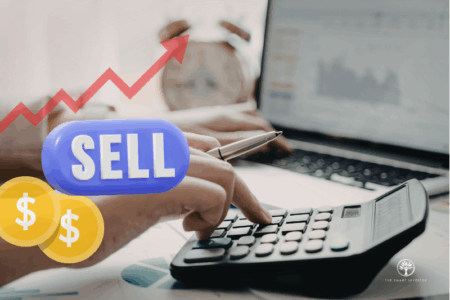Last Friday, the NASDAQ composite index (INDEXNASDAQ: .IXIC) fell into bear market territory, down nearly 23% from its peak.
This is the third bear market in five years.
There is little doubt that this rapid downturn was triggered by Trump’s tariffs.
In the aftermath, there is a lot to take in.
We could talk about how the calculation of these “reciprocal” tariffs bears no resemblance to the actual tariff rate.
Or we could delve into how certain goods, such as pharmaceuticals and semiconductors, are exempt from these import duties.
Or we could spend time debating why the baseline tariff of 10% for Singapore is unfair.
The truth is, given Trump’s unruly temperament, all of the factors above could change over the next few days or weeks.
No one knows what will happen next.
But it’s certainly not Liberation Day for the world economy.
Known knowns
When faced with uncertainty, it’s useful to separate the things that we know (known knowns), the things we know we don’t know (known unknowns), and the things that we do not know (unknown unknowns).
So, what do we know today?
For starters, countries in the region, such as Singapore, Malaysia, Indonesia and Taiwan, have decided not to impose retaliatory tariffs on the US.
Others, such as Vietnam, are negotiating a deal with the Trump administration.
Cambodia, on the other hand, has decided to lower its tariffs on American goods in a bid to win concessions.
Meanwhile, China has hit back with heavy tariffs of its own.
The 10% US tariffs started to kick in on Saturday. Heavier levies are expected to take effect on Wednesday (9 April 2025, Eastern time).
Businesses and consumers will bear the brunt of the impact.
For instance, the Wall Street Journal estimated that an Apple (NASDAQ: AAPL) iPhone 16 Pro (256 GB) could cost up to US$300 more due to import duties alone.
That’s a hefty increase that somebody will have to pay.
What will happen next?
We’re about to find out.
Known unknowns
What about the known unknowns?
For Apple, there are a few ways this scenario could play out.
The Cupertino company could pass on the full cost increase to customers.
But there is only so much a consumer is willing to bear.
Hence, making the iPhone more expensive could lead to lower sales.
Apple could also decide to absorb these increases.
However, doing so would lead to lower profit margins.
Hence, if the company wants to protect its margins, it will have to cut costs.
If so, Apple may start reducing its headcount to account for the lower revenue levels.
None of the above are good options.
But we know that one of these scenarios could play out.
We just don’t know which one will happen.
Meanwhile, we also know that the US Federal Reserve has warned that the US tariffs will lead to higher inflation and slower growth.
That said, Fed Chair Jerome Powell did not comment on the prospect of reducing interest rates.
Hence, we don’t know when or how much interest rates will be cut, should it happen.
These are the known unknowns, the things we know we do not know.
Get Smart: Knowing you don’t know everything
Finally, there are the unknown unknowns.
The things which we do not know that we do not know.
By its nature, it’s impossible to know what else could play out.
But here’s what we ought to know.
Selling in panic is never a good idea.
Selling your stocks will provide you with temporary relief, but as Morningstar’s (NASDAQ: MORN) Christine Benz puts it, this feeling will soon be replaced with another nagging worry: when will be the right time to get back in?
Worrying over things which we cannot control is not a great idea either.
Furrowing our brows just adds premature wrinkles to our foreheads.
Surely, we can do better.
So, let’s focus on what we do control.
We can control where we spend our time.
We can choose to read up about businesses, and watch how the industry leaders respond.
That’s what the Smart All Stars Portfolio has been doing, quarter in and quarter out.
We do so not because we know when a downturn will happen.
We didn’t.
But we are willing to do the background work precisely for this moment — when a bear market appears, the portfolio stands ready to act and buy shares, backed by research that it has done for the past five years or so.
That’s in addition to the decades of experience investing in the US stock market.
So, while there is a lot we do not know, we can act, gradually, pacing ourselves as events unfold.
Big Tech is spending hundreds of billions on AI, and the ripple effects are just beginning. Our new investor guide shows how AI is changing the way companies generate revenue, structure their business models, and gain an edge. Even if you already know the major players, this report reveals something far MORE important: The why and how behind their moves, and what it means for your portfolio. Download your free report now.
Follow us on Facebook and Telegram for the latest investing news and analyses!
Disclosure: Chin Hui Leong owns shares of Apple.





